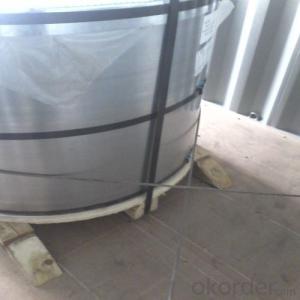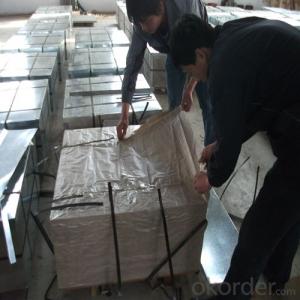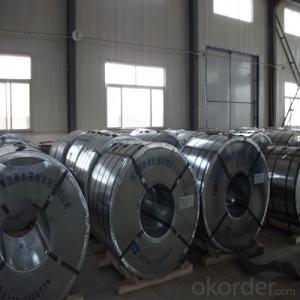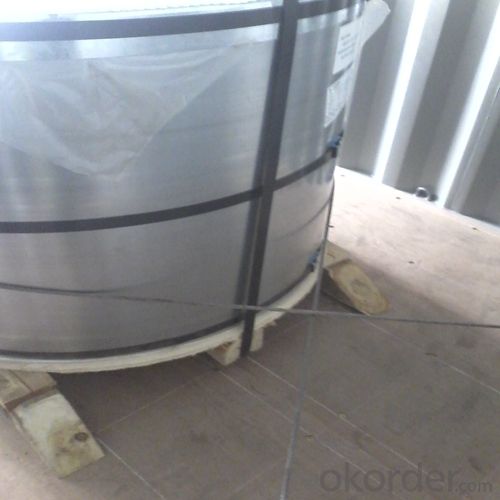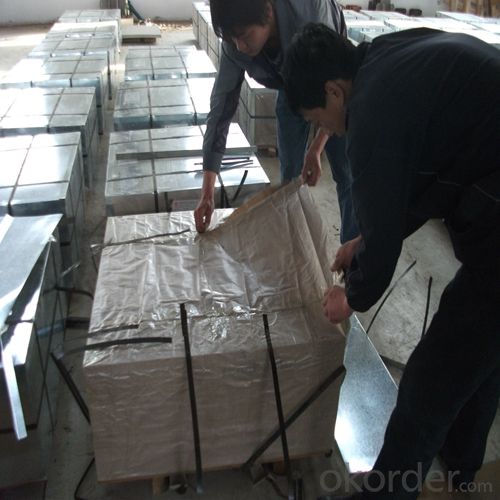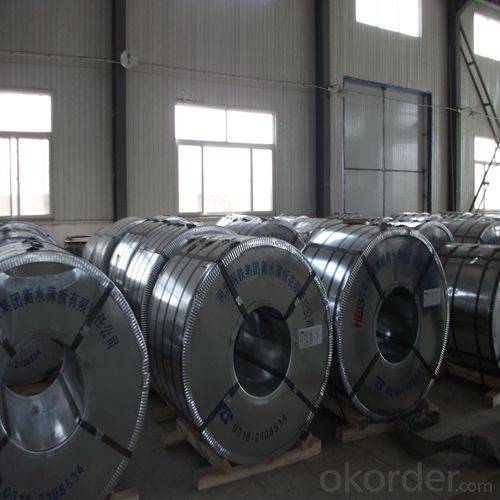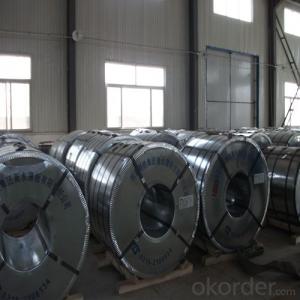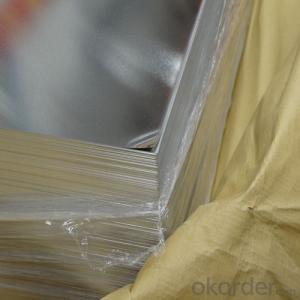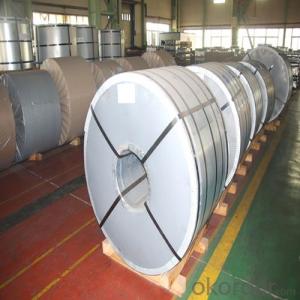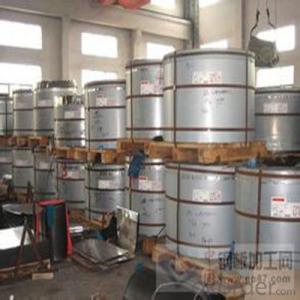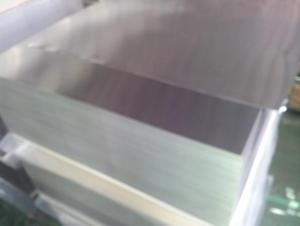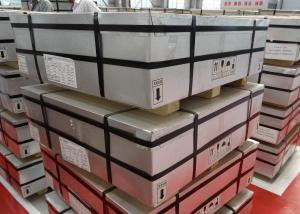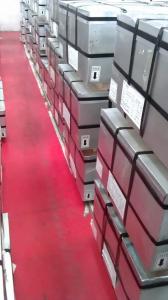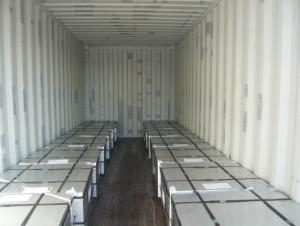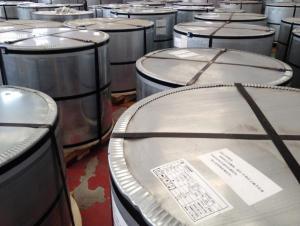Prime Quality Electrolytic Tinplate for Metal Container 0.195mm
- Loading Port:
- Shanghai
- Payment Terms:
- TT OR LC
- Min Order Qty:
- 25 m.t.
- Supply Capability:
- 15000 m.t./month
OKorder Service Pledge
OKorder Financial Service
You Might Also Like
1.Structure of Prime Quality Electrolytic Tinplate for Metal Container 0.195mm Description
Electrolytic Tinplate is a thin steel sheet coated by tin. It has an extremely beautiful metallic luster as well as excellent properties in corrosion resistance, solder ability, and weld ability.Its applications are not limited to containers; recently, tinplate has also been used for making electrical machinery parts and many other products.
2.Main Features of the Prime Quality Electrolytic Tinplate for Metal Container 0.195mm
Electrolytic Tinplate undoubtedly enjoys the pride of place as a packaging medium especially for food. It owes its unique position to its "nine layer sandwich structure", each of which contributes to its eminence as a packing material. The steel base of electrolytic tinplate provides the necessary strength and formability for can fabrication. The tin-iron alloy layer provides the bond between the steel and free tin layer. The free tin layer is not only responsible for the attractive bright finish and ease of solderability but is also non-toxic- a factor of vital importance in food packaging!
3.Prime Quality Electrolytic Tinplate for Metal Container 0.195mm Images
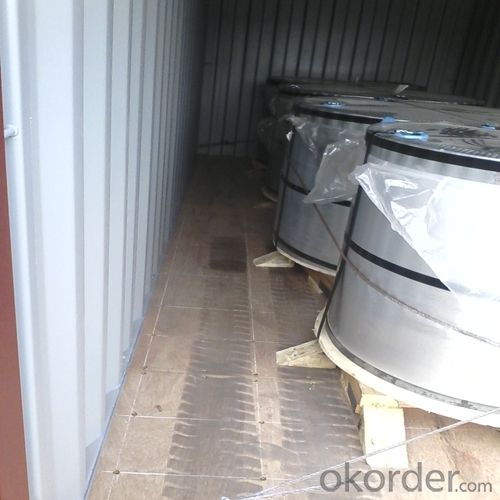
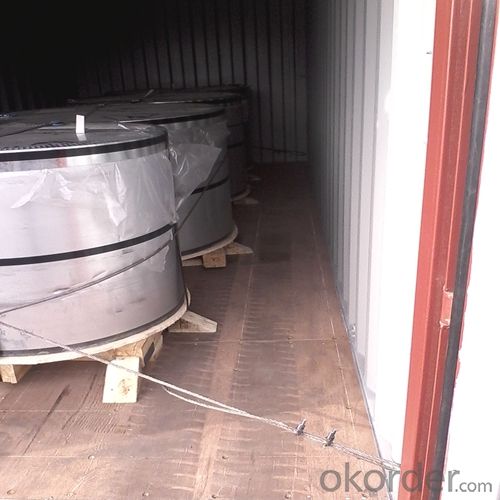
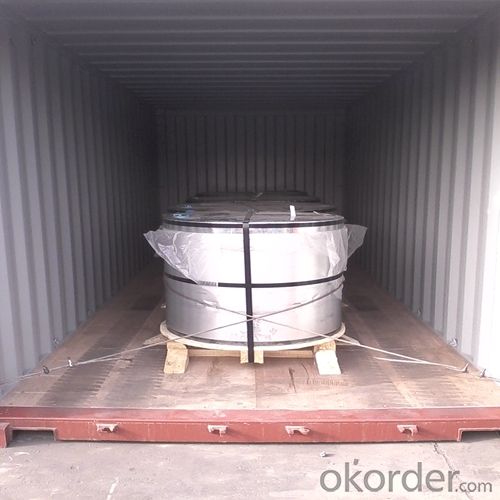
4.Prime Quality Electrolytic Tinplate for Metal Container 0.195mm Specification
Standard: ISO 11949 -1995
Material: MR
Thickness:0.195mm
Width: 1012mm
Temper:T4
Annealing:CA
Coil Inner Diameter: 508mm
Weight: 6-10 tons/coil 1~1.7 tons/sheets bundle
Passivation:311
Oil: DOS
Surface: matte
5.FAQ of Prime Quality Electrolytic Tinplate for Metal Container 0.195mm
1. What is the delivery time for your prime quality tinplate?
Usually 35 days after order confirmation.
2. What is your Minimum Order Quantity?
Usually MOQ is 50tons for one single size, for trial order, it can be 25 tons.
3. What is the payment term?
The most common we use is L/C at sight or TT. We can also try use other terms.
- Q: What are the different methods of joining tinplate components together?
- There are several methods of joining tinplate components together, including soldering, spot welding, adhesive bonding, and mechanical fastening. Each method has its own advantages and suitability depending on the specific application and desired outcome.
- Q: Can tinplate be used for chemical packaging?
- Yes, tinplate can be used for chemical packaging. Tinplate is a type of steel coated with a thin layer of tin, which provides a protective barrier against corrosion. It is widely used in the packaging industry, including for chemicals, due to its durability, resistance to corrosion, and ability to maintain product integrity.
- Q: Can tinplate be used for packaging frozen food?
- Yes, tinplate can be used for packaging frozen food. Tinplate is a type of steel coated with a thin layer of tin, which provides excellent protection against moisture and oxygen. This makes it an ideal material for packaging frozen food as it helps to preserve the quality and freshness of the product. Additionally, tinplate is also resistant to extreme temperatures, ensuring the integrity of the packaging even in freezing conditions.
- Q: Can tinplate be used for packaging of organic products?
- Yes, tinplate can be used for packaging of organic products. Tinplate is a type of steel coated with a thin layer of tin, providing excellent protection against corrosion and ensuring food safety. It is widely used in the packaging industry, including for organic products, as it is considered a safe and sustainable packaging material.
- Q: How is tinplate coated for construction materials?
- Tinplate is coated for construction materials through a process called electrolytic tin-plating. In this process, a thin layer of tin is applied to the surface of steel or iron sheets by immersing them in an electrolyte bath and passing an electric current through it. This creates a chemical reaction that deposits the tin onto the material, providing it with a protective coating against corrosion and improving its durability for construction purposes.
- Q: What is the thickness range of tinplate?
- The thickness range of tinplate typically varies from 0.13mm to 0.50mm.
- Q: How is tinplate coated with organic materials?
- Tinplate can be coated with organic materials through a process called lacquering. This involves applying a thin layer of organic coating, such as lacquer or polymer, onto the tinplate surface. The coating is usually applied using roll-to-roll coating techniques, where the tinplate is passed through rollers while the organic material is spread evenly on the surface. This coating helps protect the tinplate from corrosion, enhances its appearance, and provides a barrier between the metal and the contents of the tinplate package.
- Q: What are the main trends in tinplate recycling?
- The main trends in tinplate recycling include increased awareness and adoption of recycling initiatives, technological advancements in sorting and processing methods, and the promotion of circular economy principles to minimize waste and maximize resource efficiency.
- Q: What are the safety regulations for using tinplate in food packaging?
- The safety regulations for using tinplate in food packaging typically involve compliance with government standards such as the Food and Drug Administration (FDA) in the United States or the European Food Safety Authority (EFSA) in Europe. These regulations include guidelines on the composition and quality of tinplate coatings, prevention of migration of harmful substances into food, and adherence to good manufacturing practices to ensure the safety of the packaging material.
- Q: What are the main applications of tinplate in the household goods industry?
- Tinplate is commonly used in the household goods industry for various applications such as food and beverage packaging, storage containers, kitchenware, and decorative items. Its corrosion resistance, durability, and ability to seal in freshness make it an ideal material for cans, jars, and tins. Additionally, its versatility allows for the creation of aesthetically pleasing and functional household items like trays, buckets, and utensils.
Send your message to us
Prime Quality Electrolytic Tinplate for Metal Container 0.195mm
- Loading Port:
- Shanghai
- Payment Terms:
- TT OR LC
- Min Order Qty:
- 25 m.t.
- Supply Capability:
- 15000 m.t./month
OKorder Service Pledge
OKorder Financial Service
Similar products
Hot products
Hot Searches
Related keywords
